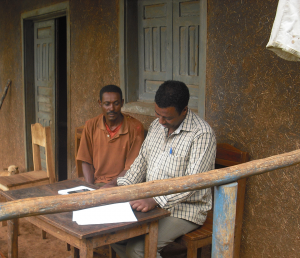Social protection policies typically involve multiple sectors, ranging from food security to health care. Despite this, limited research is directed toward understanding how different social protection programmes complement each other. We explore complementarities between three major national social protection programs in rural Ethiopia: the Productive Safety Net Programme (PSNP), the Community Based Health Insurance (CBHI) scheme and the Health Fee Waiver (HFW) system. We use secondary data from districts in which the PSNP operates to study the coverage of the CBHI and the HFW schemes. We then quantify the prevalence of health shocks reported by poor households and calculate the annual out‐of‐pocket health care expenses incurred by poor households in these districts.
We find limited overlap between the PSNP and the CBHI or HFW schemes. In districts in which the CBHI operates, about 22% of the PSNP households are enrolled into CBHI. For only 10% of all PSNP households, the CBHI insurance premium was waived due to their poverty status. In non‐CBHI districts, only 3.5% of PSNP households report having benefited from HFW. Moreover, many households report serious health shocks that resulted in loss of consumption or assets. The estimated out‐of‐pocket health expenditures are high, even among those households enrolled into CBHI or benefitting from HFW. Together, these findings suggest that there is scope to improve the linkages between these three major social protection programs in Ethiopia to protect the poorest and most vulnerable households. Read more.
